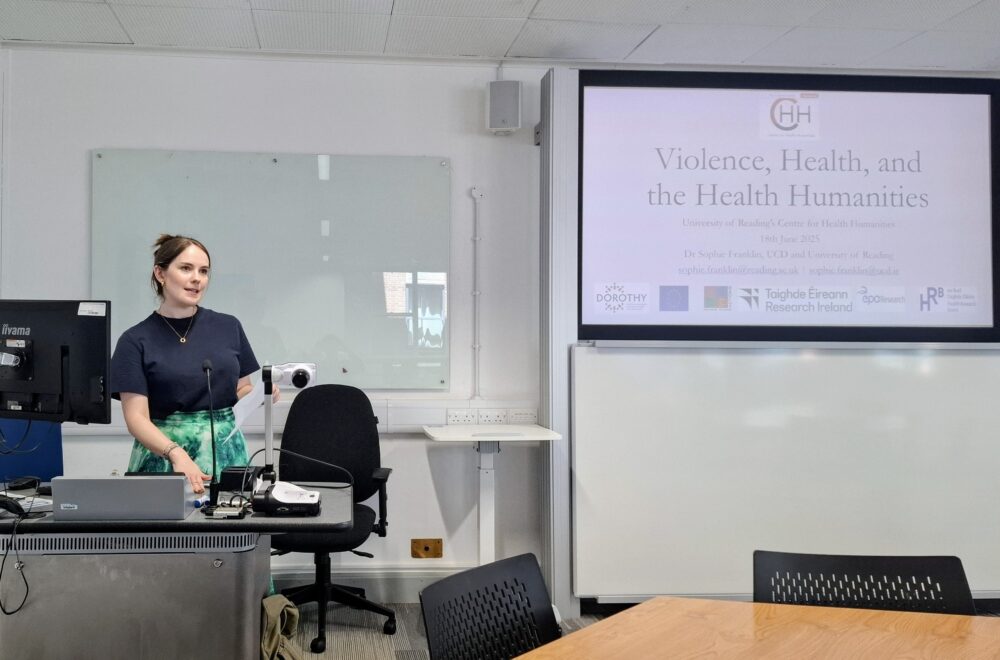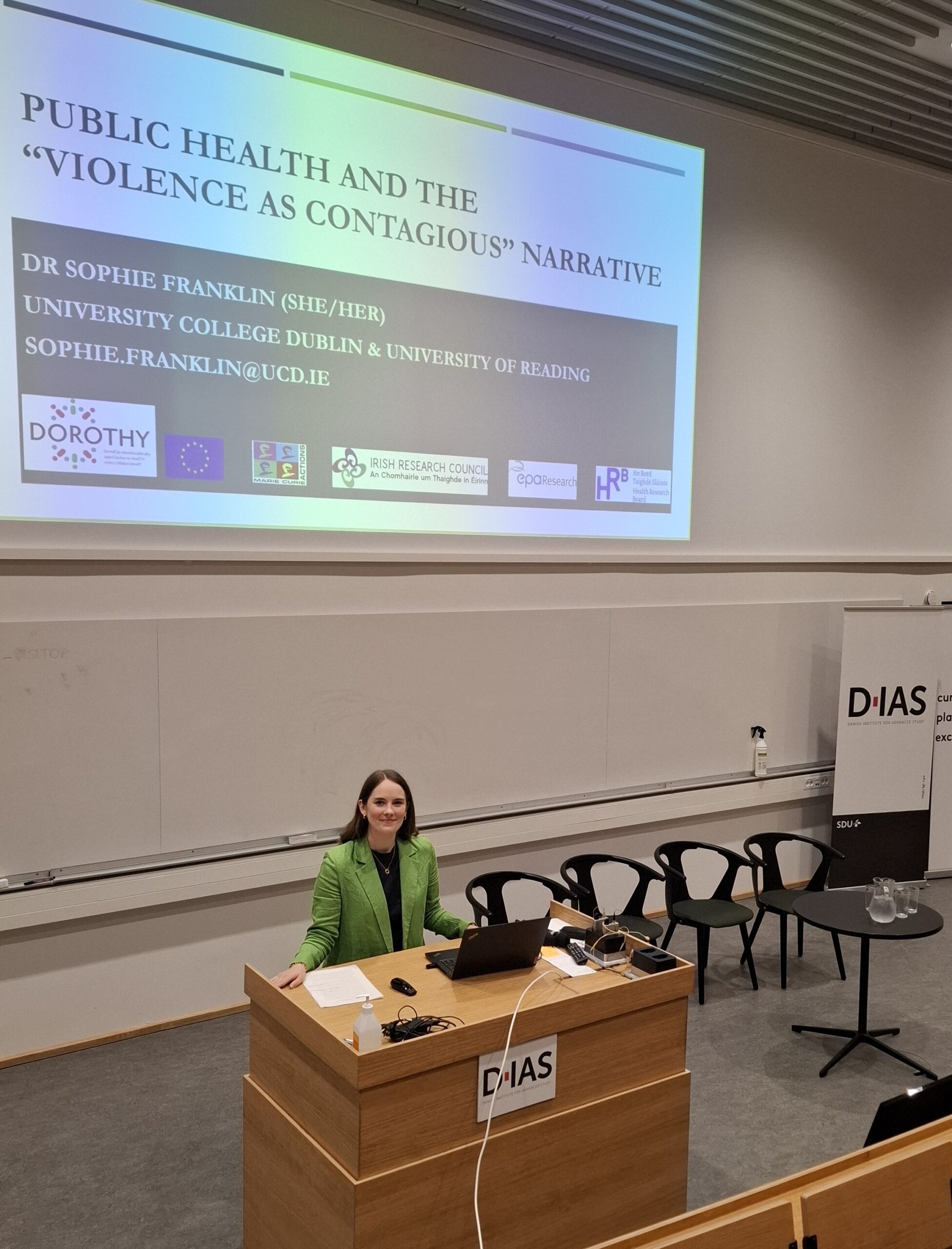Dr Sophie Franklin: Tracing Stories of Violence and Health, from the Past to the Present
Posted: 21 August, 2025

My research explores how violence has often been treated as a public health crisis from the nineteenth century to the present day. I look at literary and cultural instances of what I call the “violence as contagious” narrative, specifically in Victorian fiction and non-fiction, to consider whether and how we can learn from the past. While not all public health approaches to violence foreground the idea of contagion, the language and narratives adopted within public health initiatives often invoke metaphors of contagious and infectious disease, which were also in use throughout the Victorian period. My DOROTHY fellowship looks back in time to contextualise current attempts to reduce violence through public health measures and to show why language matters in such contexts.
The outgoing phase of my fellowship at the University of Reading (UK) has frequently pushed me outside of my comfort zone. I want to consider current understandings of violence as a public health crisis alongside nineteenth-century understandings. I’m therefore interviewing people currently working in the area of violence reduction. As someone with an arts and humanities background, I had little to no experience of working with qualitative methods like interviews. This meant I had to gain those skills through various courses, including a three-month online programme with the University of Aberdeen on ethnography. By giving me the opportunity to enhance these skills, the DOROTHY fellowship has enabled me to expand the possibilities and interdisciplinarity of my research.

I have also been expanding my expertise in the health humanities, a burgeoning field which spotlights issues around health and wellbeing within the arts and humanities. In September 2024, for instance, I presented my research at the ‘Public Health Humanities’ conference at the Danish Institute for Advanced Study, University of Southern Denmark. As a member of the steering committee for Reading’s Centre for Health Humanities, I also organised the online seminar series, inviting researchers working in areas including public engagement, disability studies, and animal encounters in sanatoriums. In June 2025, I hosted a hybrid workshop on ‘Violence, Health, and the Health Humanities’, in connection with the Centre for Health Humanities at Reading. Dr Claire O’Callaghan (Loughborough University) gave a brilliant keynote talk on the intersections of violence, health, and ageing through the case study of Patrick Brontë, the father of the Brontë sisters. Colleagues based at Reading then presented flash-talks on their current work within the health humanities and forms of brutality, including self-injury in the early modern period, paralysis in Émile Zola’s Thérèse Raquin, and contagious violence in Kerala. In the discussion sessions, attendees considered the role of violence in the health humanities, asking questions including: what are the connections between violence, health, and the health humanities? What role can arts and humanities subjects play within these connections?

As I near the end of my outgoing phase at Reading, I am putting into practice the skills gained in the last 18 months. I’m arranging interviews and organising an event in September, which will bring together researchers and public sector professionals with an interest in violence, health, and storytelling. I also have several publications under review and in press, including my monograph, Violence and the Brontës: Language, Reception, Afterlives (EUP, 2025). After an incredibly rewarding first half of the fellowship, I’m looking forward to starting the next phase at University College Dublin from October.
If you would like to get in touch about my research, you can reach me at sophie.franklin@ucd.ie.